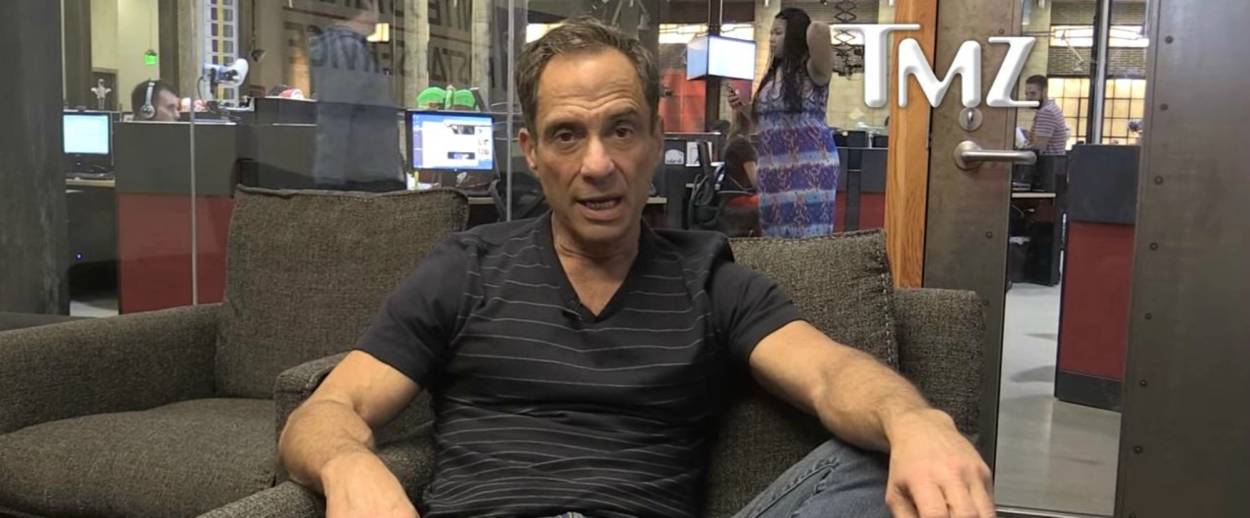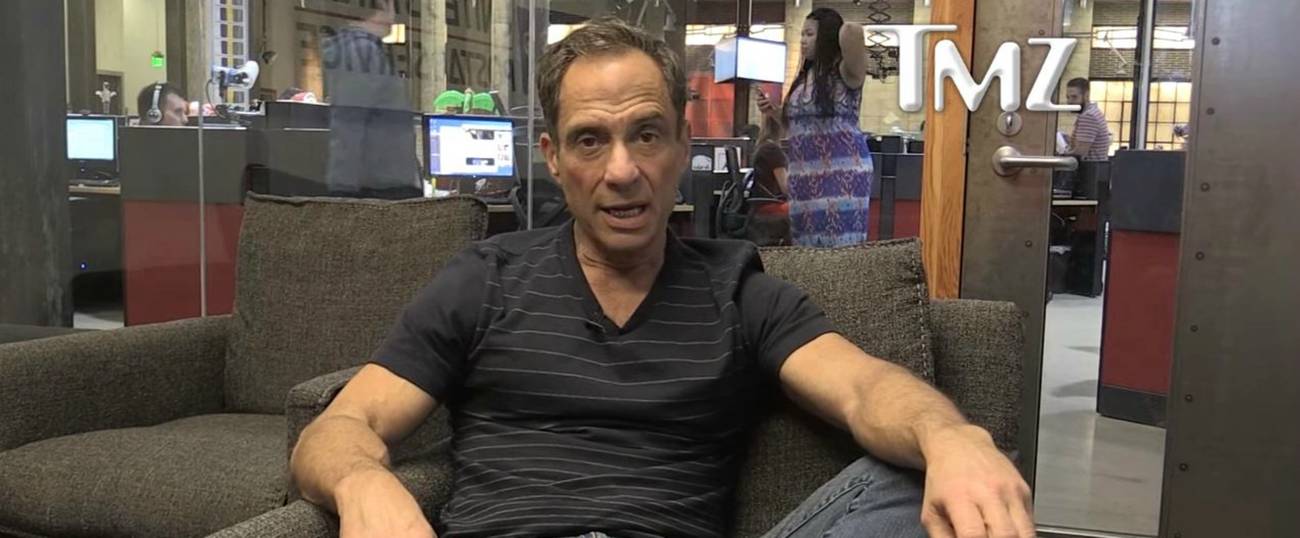The Good, the Bad, and the Career-Enders
Harvey Levin, lord of celebrity news rag TMZ, runs a morally ambiguous information-gathering apparatus




“A festering boil on the anus of American media.”
That’s the charming terminology used by actor and frequent tabloid target Alec Baldwin to describe Harvey Levin, the founder of the gossip website TMZ, who was exhaustively profiled in the most recent issue of The New Yorker. After I finished pondering the precise nature of our collective sphincter (How big is it? Where is it located?) I started thinking further about Levin himself, and the vast Stasi-like intelligence apparatus (which is in fact digestive in its complexity) that he helms. Who is Harvey Levin, and why does he seem to take such merciless glee in upending the lives of the celebrities whose foibles he makes so relentlessly public and humiliating.
Essentially, I wonder: What makes Harvey run? The most flattering answer—and the one that it seems Harvey subscribes to himself—is the question of justice. Harvey Levin, to hear him tell it, is angered by the fact that there often seems to be one rule for the rich, and another for the poor, one for the famous and one for the obscure (and check out The People v. O.J. Simpson to see this principle in perhaps its most famous application.) In the article, Levin describes growing up in Reseda, California, where his father owned a small liquor store that was frequently targeted by the police for selling alcohol to minors, while the same cops would turn a blind eye to the celebrity-friendly clubs in Hollywood who did the same. “Harvey thought it was so unfair that these clubs would get away with it, just because they were selling to celebrities,” Gillian Sheldon, a former publicist from TMZ, is quoted as saying.
That sense of fairness, of the idea that someone shouldn’t be able to get away with doing something appalling, is evident in many of TMZ’s most notorious exposes, some of which have had an unexpected—and probably unintended—slant towards public service: Mel Gibson’s career-exiling 2006 outburst in which he drunkenly expectorated (to a Jewish cop, no less) that “Jews are responsible for all the wars in the world,” which led to many of Gibson’s colleagues and friends to realize the kind of repellent views held by a man they had long defended and enriched; or the infamous 2014 surveillance footage of then-Batimore Ravens running back Ray Rice knocking his fiancée unconscious in a casino elevator, which started a national discussion about domestic violence, as well as the problem of Chronic Traumatic Encephalopathy, or CTE, which hinders its sufferers from being able to regulate their anger. (This ailment has been minimized (or concealed) by the NFL for years and may, in fact, have been a factor in the murders of Nicole Brown Simpson and Ronald Goldman, i.e., the Case That Started It All.)
And then there have been the instances of far murkier moral clarity. In 2007, it was TMZ that broadcast the voicemail left by the aforementioned Alec Baldwin for his daughter Ireland, in which he called her “a rude, thoughtless little pig.” Not Baldwin’s best moment, admittedly, but it was clearly the act of a man at the end of his rope, an impatient and angry parent who crossed a line and said something to a child which he would later regret. Normally, something of this nature would be kept private, rehashed over years of therapy, and eventually forgotten. Instead, it became a public referendum on Baldwin’s fitness as a parent and ultimately, a human being, the kind of thing which will be cited in his obituary. It’s a humiliation he will never quite shake (and which has arguably made him and his family the constant prey of paparazzi hoping for another profitable outburst.) Is that fair? Only if you subscribe to the doctrine that being famous is inherently unfair (which, perhaps it is) and that because celebrities experience the world’s highest highs, they also deserve its most punishing lows, the ones most of us poor anonymous schmucks could scarcely imagine. When celebrities are publicly humiliated, and the entirety of their being and reputation is undercut because of one bad night—this is the utter erosion of any expectation of any privacy. Is that “fair?” Hard to say. But it certainly isn’t right. And yet we click anyway.
Previous: The Celebrity Whisperer
Rachel Shukert is the author of the memoirs Have You No Shame? and Everything Is Going To Be Great,and the novel Starstruck. She is the creator of the Netflix show The Baby-Sitters Club, and a writer on such series as GLOW and Supergirl. Her Twitter feed is @rachelshukert.